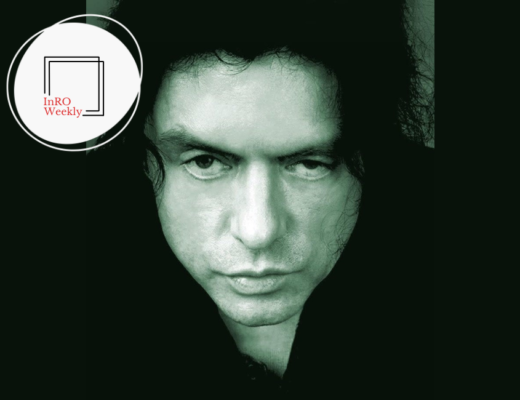Run Sweetheart Run is as inconsistent, condescending, and unsubtle as films come. Audiences should run far away indeed.
There are no shortage of think pieces out there decrying the current state of film criticism, the sheer number of ill-informed and uneducated voices vying for attention, resulting in a generic sameness that smothers incisive and thoughtful analysis. A snappy pull quote is all that is necessary for a few clicks, driving traffic to websites in desperate need of legitimacy, even as their writers offer little in the way of such. But even the most seasoned of pros have to feel deflated in this particular day and age. It’s not that films are technically getting worse — they’re not — but rather that the volume of content released on a weekly basis, thanks to the glut of streaming services, has all but guaranteed that critics and audiences alike will encounter the same tired themes and stories far more frequently than in the past. Exactly how many different ways can a writer bring nuance to a critique of yet another tale of trauma? Perhaps that’s simply a cop-out, an excuse for lazy writing; after all, a great critic can find and posit insight where none exists, much in the same way that a talented filmmaker can take the most tired of tropes and make them feel fresh and alive. Which is to say, there’s a standard for filmmakers and film reviewers alike, and it’s the latter’s job to meet that standard even as they are bombarded with movies like Run Sweetheart Run, a thriller so uninspired that it all but screams for the most banal of takes.
One of the few remaining theatrical casualties of Covid finally seeing the light of day thanks to its purchase by a streaming service, Run Sweetheart Run arrives with over two years of dust and mildew, its tale of female empowerment in a post-#MeToo world missing the wave of more prompt offerings by a margin. Timing is indeed everything, and this film is essentially the definition of a day late and a dollar short, although that implies its deficiencies rest solely on some arbitrary release date when, in reality, they run far deeper. Director/co-writer Shana Feste has made a career out of fashioning truly terrible films that somehow attract ridiculously overqualified casts — Boundaries, The Greatest, and Country Strong among them. Nothing in Feste’s filmography suggests that she would be capable of pulling off a topical thriller, although, in fairness, it’s roughly as ham-fisted as everything else she has produced, so the consistency is there. More than anything, Run Sweetheart Run tries so very hard to be hip, starting with an opening scene in which protagonist Cherie (Ella Balinska) is chastised by her employer’s male HR rep for having the gall to file a report on her boss’s inappropriate and sexist behavior. Playing like the SNL version of Kitty Green’s The Assistant, the film presents the exchange so broadly that the sudden inclusion of a chuckling studio audience wouldn’t feel out of place. The film then cuts to a close-up of a woman’s slightly opened legs, a manifestation of the male gaze that would seem a tad more appropriate if the movie ever bothered to follow up with anything even remotely similar or as cutting. Instead, so much of Run Sweetheart Run plays like Feste and co-writers Keith Josef Adkins and Kellee Terrell simply included what was tickling their fancy at any given moment, giving no thought to the overall thematics at play other than, “Men bad, women good.”
But more on the plot: It isn’t long before single mom Cherie is asked to entertain her boss’s old friend, the charming and handsome Ethan (Pilou Asbaek), to whom Cherie is more than a tad smitten. Cut ahead to later that night, and Cherie is running from his house, beaten, bruised, and bleeding. Make no mistake, the titular sweetheart does a lot of running across the city of Los Angeles, desperate to stay one step ahead of an indestructible madman who seemingly wants her dead. Those asking for the “why” of it all are the prime audience members for Run Sweetheart Run, as anyone with even a baseline knowledge of allegories will know where this is headed by minute ten, and that’s not even taking into account how the film habitually stops dead in its track to overexplain the metaphor it’s spinning. Subtlety was certainly never Feste’s intent, nor has it ever been, but this particular tale is so insulting of its audience’s intelligence that it begins to feel borderline offensive the longer it goes on. In premise alone, there’s something here that could have resulted in a modern-day, neo-noir-inspired portrait of destructive machismo a la Collateral, only punctuated with a feminist bent, but that would imply Feste demonstrates anything resembling artistic vision. Her idea of novelty is having the character of Ethan break the fourth wall whenever he is about to do harm to Cherie, at one point even physically turning the camera away.
But much like everything else on display, there’s no consistency to any of these choices, simply a moment that exists to tick the “cool” checkbox without ever feeling in the least bit organic. The same goes for Feste’s decision to employ freeze frames whenever her protagonist must run from danger, literally splashing the word, “Run!” in big red letters across the screen, in case audiences don’t get it. One simply wishes she had employed this for all other actions in the film, such as, “Exposition Dump!” before long-winded monologues or “Tampon!” every time Cherie starts to drip menstrual blood, which ends up being a rather shocking amount, because apparently Feste thinks symbolism only works if you draw attention to it in every scene and have characters outright state its importance. Run Sweetheart Run does succeed in one regard: it’s somehow both less subtle and more condescending in its rallying cry of female empowerment than Olivia Wilde’s Don’t Worry Darling, a movie that seemed as if it was written by a high school boy who was forced to read a one-paragraph excerpt from The Feminine Mystique in English class and now “totally gets” women’s struggles. This one should have stayed on the shelf.







